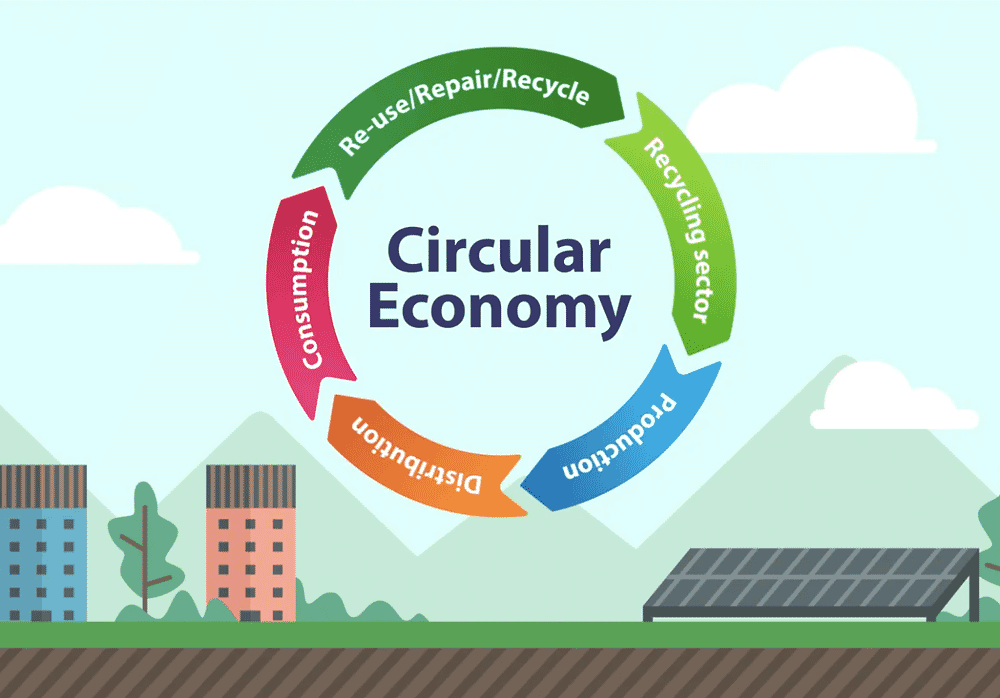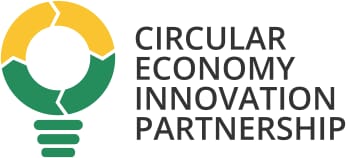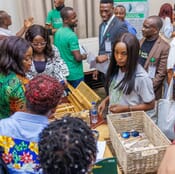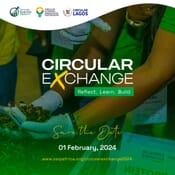
Circular economy: A seat at the table for African entrepreneurs, By Natalie Beinisch
It is imperative to create spaces for African entrepreneurs that enable locally relevant product development to evolve.
As a part of their broader vision to develop the circular economy, WEF could add a seat at the table for African entrepreneurs to grow this model further. This would include programmes that are focused on start-up financing, technical and managerial support for e-waste entrepreneurs, as well as support for the development of e-waste hubs. By adding this seat, the WEF would be playing an integral role in realising a vision of a circular economy for e-waste that is genuinely inclusive.
A Global Agenda For a Circular Economy For E-waste
The World Economic Forum (WEF) and their co-authors at the Platform for Accelerating the Circular Economy outline an ambitious agenda to transform the electronics sector in the report, “A New Circular Vision for Electronics: Time for a Global Reboot.”
This vision hinges on significantly changing how electronic goods are produced, consumed and re-used. Critically, the report imagines a process of “dematerialisation”; a world in which electronics companies retain ownership of their products and are incentivised to build goods that are more durable, re-useable and recyclable.
The European Union has energetically supported this transformation, through the Circular Electronics Initiative (CEI). The CEI introduces an Eco-Design Directive, the common charger initiative, right-to-repair legislation and tax-payer funded take-back schemes as a means of turbo-charging the circular transition of electronics.
While the WEF’s circular economy agenda for electronics and the European Union’s CEI provide a new frame for reshaping economic organisation globally, they do not go far enough in terms of us helping us think about business organisations at the regional level, particularly in Africa.
…these e-waste agendas conceive of Africa-based business opportunities as only the result of a global business transformation and international investment in e-waste recycling. They ignore African entrepreneurs as transformative forces in their own right.
Linking the Global Agenda To Africa Through Entrepreneurship
In the African context, the term “circular economy” is appealing. It potentially could address two very urgent policy issues: Reducing environmental impacts and creating meaningful opportunities for local entrepreneurs. This should, in turn, lead to higher-paying jobs, skills improvement and a cleaner environment.
However, these e-waste agendas conceive of Africa-based business opportunities as only the result of a global business transformation and international investment in e-waste recycling. They ignore African entrepreneurs as transformative forces in their own right.
Local entrepreneurs are equipped with some of the best tools available to improve skills and facilitate access to new opportunities. An example is Hinckley’s Recycling Centre in Ibeju. Hinckley’s primary business is to collect, dis-assemble and dispose e-waste components in the most responsible way possible. From the company’s perspective, responsibility is both environmental and economic, as it searches extensively for local partners to process waste. This maximises the value of economic production that is retained in Nigeria.
Hinckley’s approach has led to a partnerships with QuadLoop, a start-up that produces solar lighting from disposed batteries. After learning about QuadLoop’s interest in using disposed batteries in its production, QuadLoop set up a research and development (R&D) office at Hinckley’s recycling facilities. As Quadloop has developed its products, it incorporates new materials that are collected at the facility. The partnership allows both companies to explore new ways of working with waste materials, as well as new product and service lines and customers.
A truly global vision for e-waste must recognise that the process of “dematerialisation” is a phenomenon that can and should be promoted using a combination of approaches. Above the international and regional policy agendas, it is imperative to create spaces for African entrepreneurs that enable locally relevant product development to evolve.
African Entrepreneurship Can Drive Locally Relevant Innovation
The partnership between Hinckley and QuadLoop is an important driver of local business transformation for three key reasons. First, the partnership’s emphasis on product development facilitates skills acquisition. In this case, available material drives the process, so it is also not capital intensive. Second, product development is focused on local distribution, and is highly responsive to market needs. Third, the perspective from which Hinckley and QuadLoop innovate is unique compared to their international counterparts. Importantly, outside of a facilitative regulatory context, their motivations for new product development are different. In a context where public services are more scarce, it is arguable that African entrepreneurs are more likely to focus their attention on addressing them. In Quadloop’s case, this is not only proper disposal of e-waste, but also, very importantly, access to energy in a very poor access to energy environment.
A truly global vision for e-waste must recognise that the process of “dematerialisation” is a phenomenon that can and should be promoted using a combination of approaches. Above the international and regional policy agendas, it is imperative to create spaces for African entrepreneurs that enable locally relevant product development to evolve. The Hinckley example is a model that can be built upon to grow and scale up locally-based research and development. As a part of their broader vision to develop the circular economy, WEF could add a seat at the table for African entrepreneurs to grow this model further. This would include programmes that are focused on start-up financing, technical and managerial support for e-waste entrepreneurs, as well as support for the development of e-waste hubs. By adding this seat, the WEF would be playing an integral role in realising a vision of a circular economy for e-waste that is genuinely inclusive.
Article Source: https://www.premiumtimesng.com/opinion/545738-circular-economy-a-seat-at-the-table-for-african-entrepreneurs-by-natalie-beinisch.html?tztc=1



